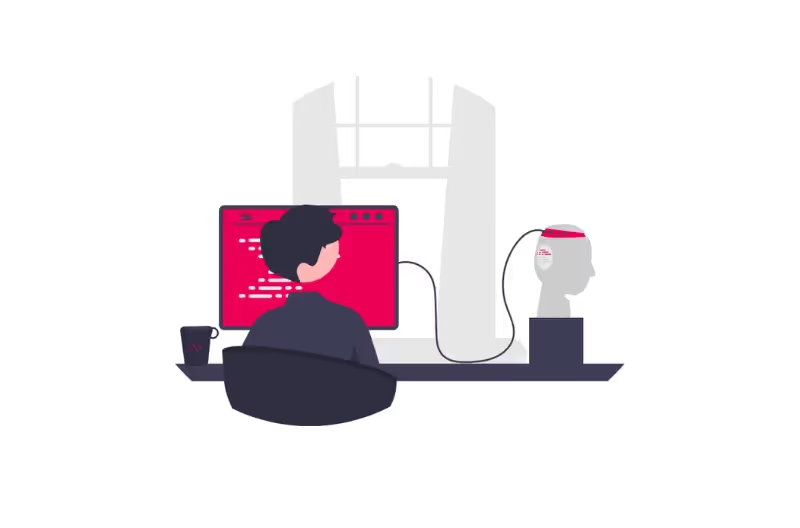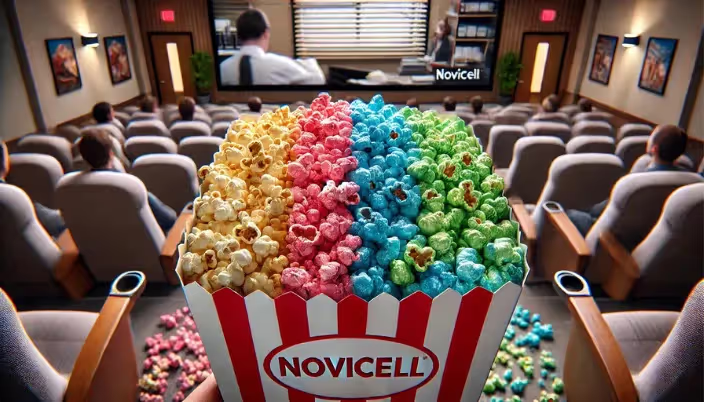PPC in the Age of AI: Best Practices for Your Campaigns

Although artificial intelligence (AI) is still a recurring topic, marketers face Great Challenges by incorporating it into your PPC campaigns. The diversity of new tools creates uncertainty when choosing the right platform, and doubts about the reliability and accuracy of AI make the process even more difficult.
However, The benefits outweigh the doubts. Its implementation optimizes many areas, from task automation to advanced data analysis. In the field of PPC (pay per click), AI is already part of the process, helping specialists achieve better results.
Los PPC specialists They Face Important Challenges. Increasing competition, rising cost per click, and the need for constant optimization can compromise campaign performance. Even so, AI offers tools that allow advertising resources to be managed more efficiently and effectively.
In this article, explore the Best Practices to implement AI in PPC campaigns, how to optimize your ads, personalize experiences and use real-time analytics to improve performance.
Artificial intelligence in digital marketing
AI in digital marketing refers to the use of technologies that mimic human reasoning capacity, with the objective of optimizing advertising campaigns and improving decision-making. These technologies allow us to analyze Large volumes of data in real time, identify patterns and make automatic adjustments that maximize the performance of marketing strategies.
In addition, AI in digital marketing not only improves operational efficiency, but it also enhances personalization. AI algorithms can predict trends and adapt advertising messages so that they reach the right audience at the right time. This allows brands to deliver personalized experiences that increase customer satisfaction and improve retention. In short, AI is transforming digital marketing, making it more strategic, accurate and customer-focused.
PPC Campaigns with AI
AI not only increases the operational efficiency of PPC campaigns, but it also enhances their effectiveness by responding more precisely and quickly to market demands.
Thanks to AI, marketers can predict trends, personalize experiences, and get more accurate and efficient results. In the area of PPC Campaigns, this technology plays a crucial role and is applied to campaigns through:
-Machine Learning: It allows the system to learn from historical data and constantly improve advertising decisions.
-Natural Language Processing (NLP): It helps to interpret user searches to show relevant ads according to specific intentions and contexts.
-Automation: It makes it easier to create and manage campaigns, saving time and reducing errors.
-Predictive Analysis: It uses data and statistical models to predict future behavior and optimize ad offers.
These tools, combined with the Human Intelligence, result in highly efficient PPC campaigns that translate into better use of budget and a user experience of High quality. With AI, optimization is not only possible, but it becomes an essential competitive advantage in the Digital marketing.
Application of AI in PPC 101
In digital marketing, Announcements PPC have become a key tool because of their ability to reach specific audience segments. This is why we give you an overview of how this (not so new) technology is creating a significant impact on the way PPC campaigns are managed and optimized today.
-Optimization of Offers: Machine learning algorithms analyze large amounts of data and adjust bids in real time to optimize the conversion rate.
-Predictive Analysis: AI uses historical data and market trends to forecast and performance, allowing proactive adjustments to campaigns.
-Improved Segmentation: Artificial intelligence identifies patterns in user behavior and demographics, improving audience segmentation and ad relevance.
-Content Creation: AI supports the creation of personalized ads thanks to natural language processing, improving the user experience.
-Real-Time Data Analysis: It allows faster decision-making based on current information to adjust strategies.
AI has been integrated into PPC campaigns, becoming an extension of human intelligence, offering insights and automation on a level that goes beyond manual capabilities.
Automation in Advertising Processes
Automation in advertising processes represents a revolution in the management of digital marketing campaigns. With the help of artificial intelligence and machine learning, companies can analyze amounts of data efficiently and in real time, allowing them to make quick and informed decisions.
This automation is reflected in the automatic segmentation of audiences, based on demographics and user behavior, as well as in the creation of personalized content through natural language processing, and in the dynamic optimization of bids in advertising auctions, maximizing conversion within the available budget.

Customizing the User Experience
The personalization of the user experience is a fundamental pillar in today's digital marketing. It is based on adapting and shaping each individual's interaction with a brand, product or online service, according to their interests, behaviors and demographics. This strategy significantly improves conversion rates and customer loyalty, since it offers a more relevant and satisfying experience.
Keys to Successful Personalization:
- Data Collection: Use information about user activity, including browsing history and previous purchases.
- Predictive Analysis: Apply tools that anticipate future user needs based on historical data.
- Segmentation: Create specific segments to direct more accurate and effective messages.
- Dynamic Content: Develop content that adapts in real time to user interactions.
- A/B testing: Test different versions of a web page to determine which one generates the best results.
By offering a personalized experience, brands connect more authentically with their audience, boosting user engagement and loyalty.
Audience Research
Effective audience research is a critical component of any digital marketing strategy. This practice involves collecting and analyzing data to better understand the characteristics, needs and behaviors of your target audience.
Applying systematic methods and high-quality analytical tools ensures that the information obtained is relevant and truthful, thus improving marketing decisions, we will tell you about the most relevant ones below.
-Behavioral Analysis: See how users interact with your website and social networks.
-Surveys and Interviews: Get opinions and preferences directly from your audience.
-Demographic Analysis: It collects data such as age, gender, location and income.
-Audience Segmentation: Divide your audience into smaller groups based on common characteristics.
-Market Trend Review: Keep up to date with what's popular and relevant to your audience.
-Historical Date: Analyze past behaviors to predict future trends.
Implementing these methods will allow you to craft more effective messages and advertising campaigns that resonate with the right people, at the right time and through the right channel.
Real-Time Offers
The time factor is a Game Changer when we talk about artificial intelligence. The fact that it is possible to have instant adjustments based on user behavior and other relevant factors gives us a great advantage to optimize our campaigns and measure results in real time.
In addition, AI tools can predict user behavior patterns and anticipate changes in demand, allowing advertisers to get ahead of the competition and optimize their budgets more effectively. For example, during special events or high traffic seasons, AI can automatically increase bids for strategic keywords, ensuring greater visibility at crucial times.
These strategies, applied with advanced AI tools, are essential to effectively compete in the dynamic PPC market and obtain the maximum return on advertising investment.
Creativity and AI: A Strategic Combination
Although at first glance the terms “creativity” and “artificial intelligence” may seem contradictory, the integration of both is changing the creation of content in PPC Campaigns. Artificial intelligence doesn't replace human creativity, but it empowers it by providing tools and data that allow creatives to make more informed and strategic decisions.
For example, AI can analyze large volumes of user behavior data to identify what types of messages and visuals are most effective for different audiences. With this information, creatives can develop more relevant and personalized ads that better resonate with users. In addition, the ability of AI to generate ad variations, based on continuous A/B testing, allows experimenting with different creative approaches and optimizing in real time, something that would be practically impossible to do manually.
AI is also facilitating the generation of content through natural language processing, which allows us to create coherent advertising texts aligned with the desired style and tone. This not only speeds up the creation process, but also ensures that each message is perfectly adapted to the target audience.
In short, far from limiting creativity, AI offers new opportunities to explore innovative ideas and develop more effective and personalized PPC campaigns. By combining human intuition and originality with the analytical power of artificial intelligence, results that previously seemed unattainable can be achieved.

AI tools for PPC
Manage PPC Campaigns requires making quick and accurate decisions in an environment that changes frequently. Today, artificial intelligence has become an essential ally in simplifying this process. Next, we'll explore how these technologies can improve the management of your ads and help you achieve better results.
1. Google Ads
Google Ads Smart Bidding is one of the most prominent tools that integrates artificial intelligence to optimize PPC campaigns. It uses machine learning algorithms to adjust bids in real time, with the goal of improving the conversion rate or conversion value. Available strategies include target CPA, target ROAS, and maximizing conversions, each adapted to different campaign objectives.
Google Ads Intelligent Automation not only optimizes bids, but it also adjusts ads based on performance history and the content of our website. This allows The Announcements Reach Users with a High Probability of Converting, thus maximizing return on investment. In addition, this tool offers intelligent segmentation, identifying and adjusting audience segments through the analysis of demographic and behavioral data, which guarantees greater relevance and effectiveness of advertising campaigns.
2. Facebook Ads
Facebook Ads Automatic Placements is a tool that maximizes the relevance and reach of ads by automatically placing them in different locations within the Facebook network, including Instagram, Audience Network and Messenger. Using artificial intelligence algorithms, this tool determines the optimal locations where ads are most likely to perform better.
This automation allows advertisers to reach their target audience more efficiently, as AI optimizes the distribution of ads in real time, adjusting to user preferences and behaviors.
As a result, campaigns can achieve a greater visibility and effectiveness without the need to manually manage each location, saving time and resources while maximizing the impact of advertising.
3. Chat GPT
ChatGPT has become a valuable tool for the Competitive analysis in the field of PPC. Using natural language processing, it can analyze large volumes of textual information to extract insights about competitors, market trends and the performance of advertising campaigns.
This ability allows marketers to gain a deeper understanding of their competitors' strategies, identify opportunities for improvement, and anticipate market movements.
In the context of Google Ads, ChatGPT can help identify profitable keywords, analyze the content of competing ads, and provide recommendations for optimizing advertising messages. By taking advantage of these insights, advertisers can adjust their own campaigns in a more informed and strategic way, thus improving their performance and competitiveness in the market.
Challenges and Considerations When Using AI in PPC
The incorporation of IA In PPC campaigns it is a crucial step in Ad optimization And improvement of Conversion rates. However, we face certain challenges such as data analysis, which is sometimes incomplete due to complexity and quantity. This scenario requires more advanced technology that can generate new technological dependencies.
In addition, there are significant ethical considerations that should not be overlooked. La Transparency in the use of AI algorithms it is essential to maintain user trust. La Data privacy is another critical aspect, since campaigns can collect user demographic and behavioral data. Finally, we must be cautious with Biases in Machine Learning that can emerge from the historical data that fuels AI models.
To address these challenges:
- Make sure you have protocols in place to ensure data integrity and security.
- Use AI models that are explainable and whose decisions can be tracked.
- Review and correct biases in the data to avoid discrimination and improve the effectiveness of campaigns.
These recommendations allow for a responsible and effective implementation of AI, raising the standard and Quality of Digital Marketing Campaigns.

The Future of AI in PPC Campaigns
As we have already noticed, artificial intelligence has become an indispensable resource for improving the management of PPC campaigns. One of the most outstanding characteristics of AI is its predictive capacity, its constant improvement and its reliability, aspects that are of great interest to marketers. These qualities make it possible to design campaign plans even more accurate, thus optimizing resources and maximizing results.
However, it's important to remember that technology, no matter how advanced, is no substitute for human knowledge and intuition. The key is to know how to combine these tools with a deep understanding of the market and the audience. In addition, the implementation of AI in voice advertising platforms is emerging as an innovative trend., opening up new possibilities to reach consumers in a more interactive and personalized way.
Marketers who can intelligently integrate these solutions into their strategies will achieve more efficient campaigns and superior results. In an environment as dynamic as that of digital marketing, adapting and taking advantage of the opportunities offered by artificial intelligence will make a difference. Exploring and experimenting with predictive technologies and voice announcements isn't just an option, but a necessity to stay competitive and achieve a higher return on investment.
We're here to help
In Novicell, we have a team specialized in campaigns PPC who is ready to support you. If you need help implementing these solutions or want to optimize the performance of your campaigns, we're here to collaborate and achieve your goals together in an efficient and personalized way.
Cómo podemos ayudarte
Consulta los servicios con los que te ayudaremos a conseguir tus objetivos digitales.
.avif)